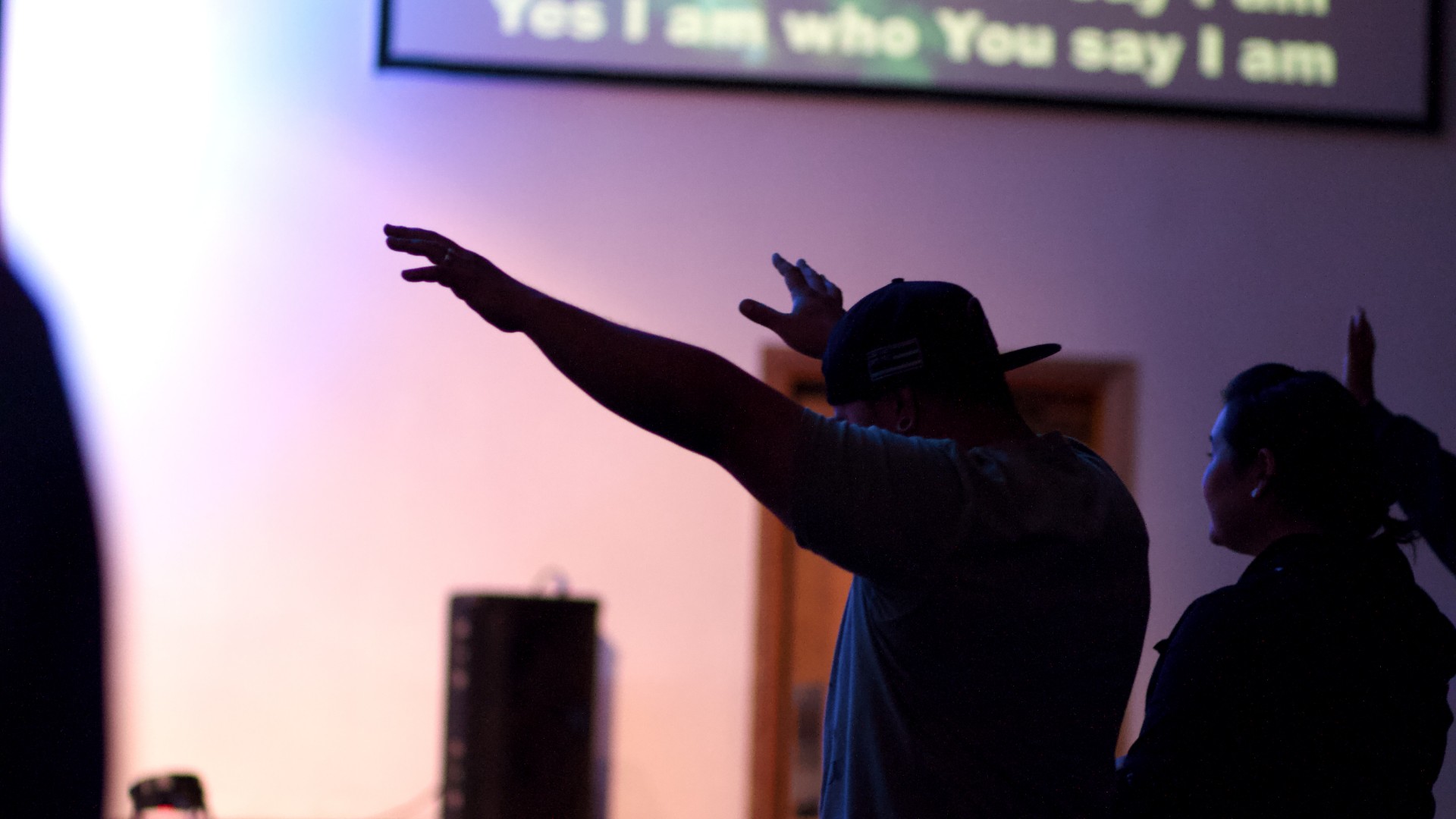For some Christians, the “sinner’s prayer” has taken on an almost superstitious quality. If we can just get our friends or loved ones to repeat the words, they’re in. Merely reciting the prayer, however, is no guarantee without these three assurances of salvation.
Over the years I’ve become increasingly disenchanted with the so-called “sinner’s prayer.” Found at the end of gospel tracts, it’s also frequently used by pastors and evangelists as part of an altar call to usher the penitent into the Kingdom.
It goes something like this: “Lord Jesus, I am a sinner. I believe that you died for my sins so I could be forgiven. I receive you as my Lord and savior. Thank you for coming into my life. Amen.”
The prayer itself is fine. I prayed a version of it in 1973, initiating my own walk with Christ. I’ve used it often since to assist others in expressing their faith for the first time.
Subtle Superstition
On occasion, though, I’ve noticed an almost superstitious disposition towards the sinners prayer. Frequently when I ask if a particular person is a Christian, the response I hear is, “Well, they prayed the prayer.” It’s as if the words were magic, and if we can just get someone to recite them we’ve accomplished our goal.
I fear we’ve inoculated a whole generation of people who got a partial injection of Christianity and are now resistant to the real thing. They prayed the sinner’s prayer, got their “fire insurance,” and then disappeared, never to be seen again. When confronted with the Gospel anew they shrug, “Been there, done that. Now leave me alone. I have a life to live.”
The focus of evangelism should never be praying the prayer, but following Jesus. When we emphasize deciding for Christ instead of living for Him, we often get spiritual miscarriages instead of spiritual births. Our sense of safety can’t come from simply saying a magic prayer. How, then, do we know if we belong to Christ?
Three Levels of Confidence
Our confidence in the security we have as Christians comes from three sources. First, we have the objective promises of Scripture. The apostle John’s guarantee is characteristic, “These things I have written to you who believe in the name of the Son of God, in order that you may know that you have eternal life.”1
This concept is so foundational its repeated many times in the New Testament:
John 3:16 “For God so loved the world, that He gave His only begotten Son, that whoever believes in Him should not perish, but have eternal life.”
John 3:36 “He who believes in the Son has eternal life; but he who does not obey the Son shall not see life, but the wrath of God abides on him.”
John 5:24 “Truly, truly, I say to you, he who hears My word, and believes Him who sent Me, has eternal life, and does not come into judgment, but has passed out of death into life.”
John 6:40 “For this is the will of My Father, that everyone who beholds the Son and believes in Him, may have eternal life; and I Myself will raise him up on the last day.”
Rom. 10:9 “If you confess with your mouth Jesus as Lord, and believe in your heart that God raised Him from the dead, you shall be saved.”
Our second source of confidence in our salvation is entirely subjective. Christians have an ineffable awareness that they belong to God. This comes from the witness of the Holy Spirit to our inner man.
Paul’s teaching on this is well known: “For you have not received a spirit of slavery leading to fear again, but you have received a spirit of adoption as sons by which we cry out, ‘Abba! Father!’ The Spirit Himself bears witness with our spirit that we are children of God.”2
John echoes the same thought when he writes, “By this we know that we abide in Him and He in us, because He has given us of His Spirit.”3
Some people put the greatest emphasis on this subjective element, but the Scripture emphasizes it the least. The reason is, I think, because it’s the most unreliable. It’s possible to have tremendous inner tranquility even when in extreme danger. Conversely, even the sturdiest spiritual warrior experiences periods of dryness, emptiness, and doubt.4
The third and most telling evidence of salvation is a holy life of persevering faith. John says bluntly, “The one who says, ‘I have come to know Him,’ and does not keep His commandments, is a liar.”5
Paul tells Timothy, “Pay close attention to yourself and to your teaching; persevere in these things; for as you do this you will insure salvation both for yourself and for those who hear you.”6 He later warns, “If we endure, we shall also reign with Him. If we deny Him, He also will deny us.”7
Peter tells us to “be all the more diligent to make certain about His calling and choosing you; for as long as you practice these things, you will never stumble.”8
The book of Hebrews is filled with warnings. “We have become partakers of Christ, if we hold fast the beginning of our assurance firm until the end” (3:14), and, “You have need of endurance, so that when you have done the will of God, you may receive what was promised” (10:36).
This is why the teaching of James is so important. Paul’s instruction on justification by faith alone is so radical it can be mistaken for license, a charge he defends against in Romans 6:1–2. There’s no such confusion with James, though. To paraphrase James 2:26, “The human body without the breath of life is nothing but a corpse. The same is true for anyone who says he has faith, but doesn’t back it up with a changed life.”
The Beginning, Not the End
What makes a person sure his fire insurance is in force? If all he can say is “I prayed the prayer,” he’s in trouble. If he’s not actively following Jesus, I can give little assurance. People grow at different speeds, but there must be evidence of a life being transformed at some level.
If you want to lead someone to Christ, forget the magic prayer. There’s no precedence for it in the Bible, anyway. In the New Testament, baptism served the function of marking the entry of a person into the Body of Christ.
Rather, enjoin the one who is spiritually hungry to satisfy his appetite day by day by following the Savior. Give him some guidelines on how to do that. Tell him about prayer, fellowship, and Bible study. Instruct him in forgiveness, regeneration, and justification.
Don’t let him forget, though, being born again is the beginning, not the end.

